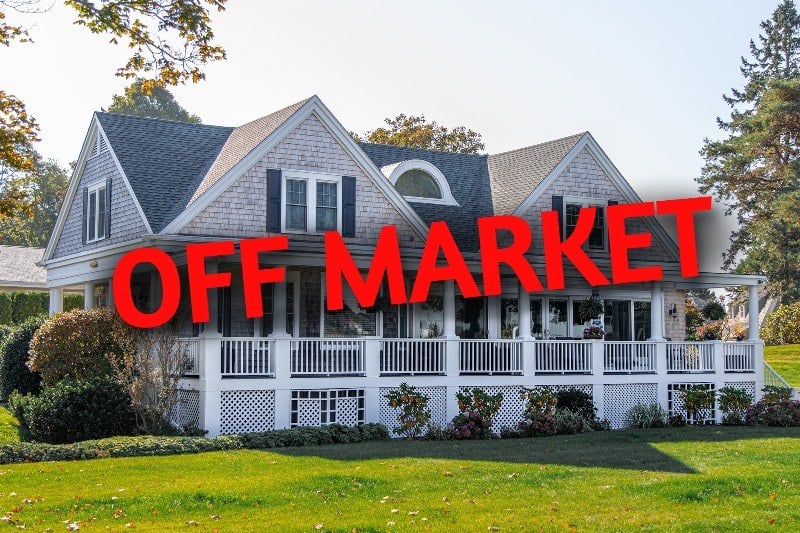You might come across the phrases “buyer’s market” and “seller’s market” while on the search for your new home. What do these terms mean, exactly, and what do they mean for your home search? Here’s what you need to know.
Buyer’s Market
A buyer’s market occurs when the supply of homes outstrips demand. In other words, there are too many houses for sale, and not enough people interested in buying a home. A buyer’s market favors the buyer - it’s easier in a buyer’s market to bid low, have your offer accepted, and request concessions from the seller.
Seller’s Market
A seller’s market occurs when demand for homes exceeds supply. In other words, there are more people looking for homes, and not enough homes entering the market. A seller’s market favors the seller - it’s easier in a seller’s market to receive full asking price, multiple bids (a bidding war), deal with fewer concessions/not have to pay as much at the closing table.
Is it a Seller’s Market or a Buyer’s Market?
Right now, the U.S. is experiencing a seller's market.
However, the answer to this question can differ by location. Cities - and often, specific neighborhoods - can often differ from each other and from the country as a whole when it comes to supply and demand. Camden, NJ, and Minneapolis, MN, for example, are currently experiencing a buyer’s market, even while most of the country experiences a seller’s market.
Available inventory is a key metric by which to measure the housing market. In a true market equilibrium, there should be a four month’s supply of homes available.
Via the Houwzer Market Outlook blog:
"We are currently at unprecedented levels of low inventory, which is considered an extreme seller’s market. A balanced market is considered to be 6-8 months of supply (= 13-17% absorption.) A buyer’s market is considered to be >8 months supply (< 13% absorption) and a seller’s market is considered to be <6 months supply (> 17% absorption.)"
In other words, the U.S. has very little housing stock right now - and it will likely take years for this imbalance to right itself. In all likelihood, the current seller's market will persist through 2021 and beyond.
What Makes the Market Shift?
How does a seller’s market become a buyer’s market, or visa versa? There are many factors at play. By examining these factors, you can also make better guesses as to whether the current market will continue, or whether there are headwinds of change on the horizon:
- Mortgage interest rates - when the mortgage rates go up, people are more reluctant to take on loans. When rates go down, more buyers enter the market, trying to take advantage of the low rates while they last.
- New home construction - there is a finite number of homes on the market, and builders have not yet returned fully to the activity levels pre-2007 housing crash. There is a perpetual shortfall of new starter homes to replace the aging housing stock, and the issue is further exacerbated by rules and regulations that make it easier and more profitable for builders to build luxury homes. According to MarketWatch, this is the first year we might see 1 million new units per year - but the lingering impact of COVID-19 may stunt that growth.
- Generational activity - baby boomers have been opting to age in place rather than downsize from the homes they raised their families in. This has the effect of gridlocking the housing market - until the boomers move out, the upcoming millennials can’t move in. About 1.6 million homes are expected to eventually enter the market, which could promote a market shift sometime in the next decade or two.
- Local demand - when home prices start to greatly increase in value year over year, more and more people see it as a sound investment strategy and look to exit the rental market. Conversely, when home prices appreciate slowly, a local market may shift to a buyer’s market.
- Market crash - this is extremely rare. Though a market crash can impact the housing market, it is incorrect to assume all market crashes will. Demand can also swing both ways. If foreclosures rise, a flooded market may result in decreased buyer demand - but conversely, if wary sellers refuse to put their homes on the market, demand for the very limited pool of housing stock can increase prices.
Will We be Entering a Buyer's Housing Market Soon?
It’s impossible to say exactly when and how a housing market shift will occur. As documented in our monthly Market Outlook, it’s possible that the market will soften a bit in the upcoming year - mortgage rates will eventually rise from their current historic lows, which will push some people out of the market.
Our monthly Housing Outlook provides a bit of context for what can happen in the upcoming year:
"Rising interest rates would be an early indication of a shifting housing market. Higher rates would likely put a damper on the extreme seller’s market conditions we’re seeing."
In all likelihood, even if conditions soften the nation will remain in a seller's market for years to come - though some local markets may experience more of an equilibrium.
How to be a Buyer in Seller’s Market
In a seller’s market, the advantage is in the seller’s court - not yours. Here’s what you should do in order to increase your chances of buying a home quickly, at a price you can afford:
- Get pre-approved for your loan and have proof of funds ready to go
- Simplify your offer - too many contingencies will make you less competitive. In a seller’s market, it’s harder, for example, to require that your home sells first.
- Consider coming in at the asking price, or close to it. It can be tempting to come in low and see what the buyer says, but this can be a risky approach. In a crowded market, buyers are often choosing from multiple offers - or know they can wait for a better one.
- Word your offer letter carefully - use a guide like Opendoor’s to craft a concise yet persuasive offer.
"You need to have money in the bank, and you need to have a pre-approval from a lender before you start looking. Because of the seller's market, we can't even write a contract if you are waiting on funds from a state program. With multiple bids, sellers will not wait for that money to come through," advises Baltimore-based buyer agent Jeanette Mitchell.
"My top advice (for a buyer in a seller's market) would be: have money in the bank for earnest money deposit and closing costs, and also put your own home on the market as soon as possible - get it sold, but put it as part of the agreement that you have a three-week post-occupancy agreement so you have time to settle on your new home."
How to be a Seller in a Seller’s Market
As the seller in a sellers market, you’ve got the advantage! Here’s what to keep in mind when you go to sell your home.
- Consider setting the price just below market value - though it may seem counterintuitive, this can often lead to bidding wars as multiple buyers are drawn to perceived value.
- When considering offers, it’s not just the sale price that matters. Weigh the value of the earnest money deposit, the financing (or whether it’s all cash), any contingency waivers, and any special requests. The right offer for you will depend on your unique circumstances.
- When you’ve received multiple offers, you can ask buyers to resubmit their best/highest offers.
- Be ready to move - many buyers are looking for a quick move (45 days or less). By preparing yourself for this possibility, you won’t leave any good offers on the table.
How to be a Buyer in a Buyer’s Market
In a buyer’s market, the ball’s in your court as a buyer. You have a greater ability to be choosy, and when you submit an offer you have a better chance of having it accepted.
- Offer a fair price, but at your Realtor’s advice, consider coming in a bit below market value and see how the seller negotiates.
- Request contingencies as needed. If you’re worried about your own home selling, make it a contingency of the sale.
- Don’t be afraid to ask for allowances or credit, especially once you’ve gotten a look at the results of the home inspection. Renegotiation should always happen at this point.
- Use the acceptance period to your advantage - give the seller 24 hours to make a decision about your offer. This will prevent indecision from setting in.
How to be a Seller in a Buyer’s Market
In a buyer’s market, sellers don’t have the negotiating power. Here’s what you need to do to sell your home quickly, and for a reasonable price.
- Hire an experienced agent - and take their feedback seriously. It’s easy to let emotions cloud your judgment when it comes to your home. Making minor cosmetic repairs, for example, can matter more when your home needs to stand out to a limited pool of buyers.
- The majority of home searches now start online, so make sure your listing profile is accurate and extensive. Professional listing photos are a must-have.
- Price your home competitively. Listing too high will dissuade buyers from even looking at your home - let alone bidding on it.
For Further Reading



